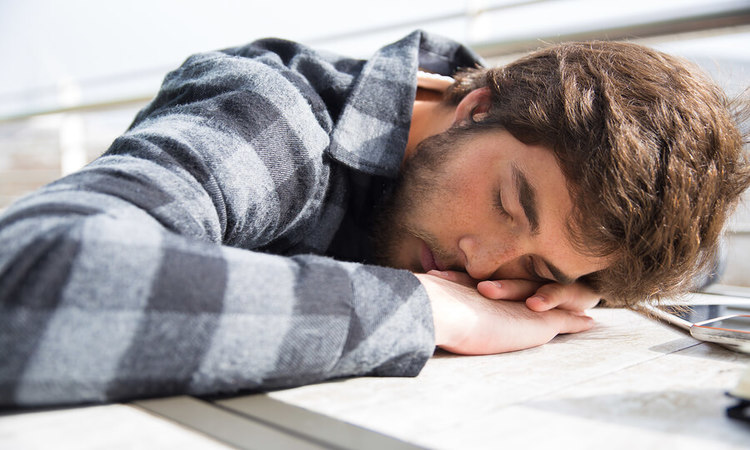
Ritalin (methylphenidate) is a central nervous system (CNS) stimulant prescribed for attention-deficit hyperactivity disorder (ADHD) and narcolepsy. When misused, it can induce effects similar to cocaine and methamphetamine. Long-term use can lead to dependence and the onset of withdrawal symptoms upon cessation.
What Are Ritalin Withdrawal Symptoms?
Ritalin withdrawal can persist anywhere from a few days to several weeks. Common effects include the following:
- Fatigue
- Hunger
- Depression
- Insomnia
- Hypersomnia
- Vivid dreams
- Nightmares
- Drug cravings
- Inability to feel pleasure
Even those who do not use Ritalin regularly may encounter a “crash” or “comedown” when the drug’s effects subside. A Ritalin crash may include symptoms such as depression, exhaustion, excessive sleep, increased appetite, and hypersensitivity. Ritalin withdrawal symptoms can vary in severity depending on a person’s individual physiology, as well as how much Ritalin was used and for how long.
Ritalin withdrawal is not life-threatening. However, withdrawal effects can be both physically and psychologically unpleasant, and people may relapse to relieve symptoms. People may also suffer from depression and suicidal ideations while withdrawing from Ritalin.
Why Do People Abuse Ritalin?
Like Adderall, Ritalin may be misused by high school or college students trying to improve their academic performance. It is also common for athletes to binge on Ritalin or other stimulants in an attempt to enhance physical performance.
Ritalin may also be abused by those who want to stay awake for an extended period or achieve a high. Users may binge on the drug over the course of several hours or days or engage in regular daily use.
People who misuse Ritalin can also develop a tolerance, meaning that they will require increasingly higher doses to achieve the desired effects. This repeated, routine use can result in physical dependence and addiction. Excessive users and those who tamper with the drug (e.g., crushing and snorting) face an even higher risk of addiction.
Treatment for Ritalin Withdrawal

A detox from Ritalin can be performed on either an inpatient or outpatient basis. Those people with more severe cases of addiction may need 24/7 medical supervision at a detox facility to maximize the likelihood of recovery and prevent relapse.
Recovery does not stop at detox, however. Often, the onset of withdrawal symptoms indicates a far more significant problem that goes beyond occasional use. Seeking continual treatment can lower the risk of relapse and minimize other consequences associated with abuse.
Recovery by the Sea offers treatment for Ritalin abuse and addiction that includes the following:
*Partial Hospitalization
Partial Hospitalization (PHP) offers most of the same therapeutic components as a residential or inpatient treatment while allowing more flexibility for individuals to attend to outside obligations. PHP can be just as effective as inpatient programs, however, as they offer similar treatments, including behavioral therapy and peer group support.
Our Partial Hospitalization Program is a major first step for those who require more support than is provided in an outpatient program but with fewer restrictions and less structure than an inpatient program.
*Outpatient Treatment
Outpatient programs includes many of the same types of treatment as inpatient programs, but treatment occurs on a part-time basis. Participants reside at home or a sober living facility, and many continue to carry out their normal activities. This type of treatment may be an ideal fit for those who must stay active in their lives as well as those who have less intense addictions.
Therapies
Therapies used to address addiction to stimulants like Ritalin include the following:
*Cognitive-Behavioral Therapy
Cognitive-behavioral therapy (CBT) helps people gain insight into how their thoughts contribute to their behaviors and teaches new, healthier strategies for managing cravings as an alternative to drug use.
*Individual and Group Counseling
Counseling can help people come to terms with their drug use and address any underlying emotional problems that may be related to their addiction. Group counseling allows people to explore these issues while participating with others.
*Medications
Currently, there aren’t any medications approved by the FDA for the treatment of Ritalin dependence. However, some medications may be prescribed to manage the symptoms of withdrawal, such as headaches, depression, and nausea.
Get Help Now
If you or someone you love is struggling with an addiction to Ritalin, other drugs, or alcohol, contact us today! We are dedicated to helping those who need it most break free from the cycle of addiction for life!
READ THIS NEXT: Snorting Adderall